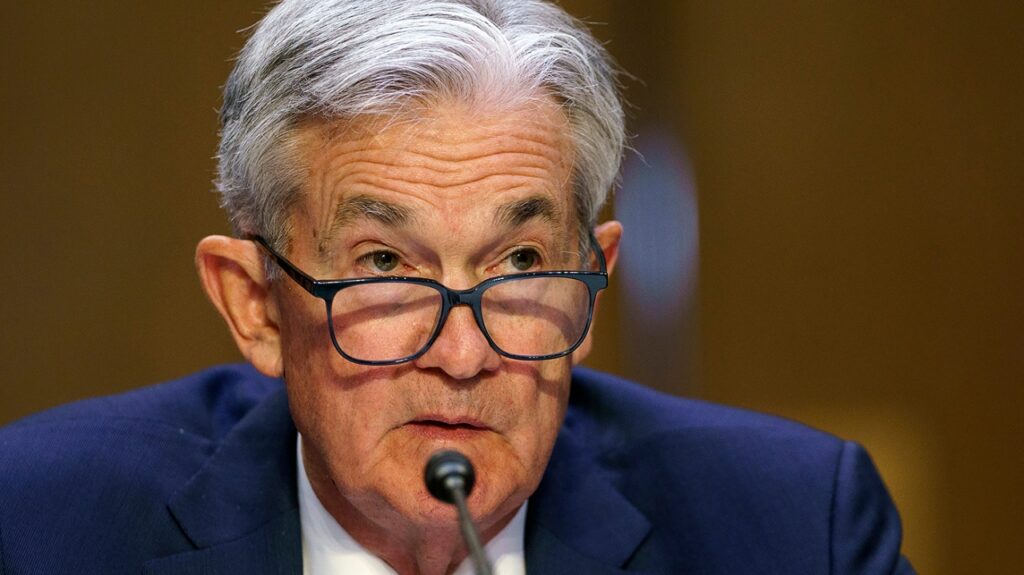Federal Reserve Chairman Jerome Powell in a Wednesday speech said the global economy has entered a “new world” when it comes to inflation, while insisting the Fed would stick to its goal of inflation at a 2 percent annual hike.
Powell said the low inflation era after the 2008 financial crisis is over and that new economic forces have led to higher inflation, creating challenges for the world’s central banks.
“The last 10 years were, so far, the height of the disinflationary forces that we’ve faced, and really it goes back to before the global financial crisis, but since the global financial crisis, we’ve had very low inflation in the United States,” Powell said at a central banking forum in Portugal. “That world seems to be gone now, at least for the time being.
“We’re living with different forces now and have to think about monetary policy in a very different way,” Powell said. “So I think if you want to know the lessons to be learned over the last 10 years, look at our framework — those were all based on the low-inflation environment that we had, and now we’re in this new world where it’s quite different with higher inflation, many supply shocks and strong inflationary forces around the world. It’s quite a different environment.”
Inflation around the world is surging to decades-long highs in many countries. Consumer inflation is at 8.6 percent in the US, 5.2 percent in France, 7.6 percent in Germany and 10 percent in Spain — nearly all high-water marks.
Powell said the Fed is not reconsidering what a neutral inflation rate should be despite all the changes.
“We are committed to and will succeed in getting inflation down to 2 percent,” he said.
Economists say the root cause of inflation is the combination of high demand for goods and services along with supply shortages and disruptions in the wake of the coronavirus pandemic. Some economists say that supply disruptions are compounded by high levels of employment and increasing wages.
Conservative analysts argue that tight labor markets compel companies to drive up their prices in a what’s called a “wage-price spiral,” while liberals argue that the inflationary environment acts as a smoke screen for companies to charge consumers a premium without feeling the negative effects of market competition.
In either case, labor protests have been erupting around the world in response to the increased cost of living, with rail workers on strike in the United Kingdom and picketing truckers in South Korea having forced stoppages in production.
Powell sought to assure his listeners that he’s still focused on improving economic conditions for consumers.
“We fully understand and appreciate the pain people are going through dealing with higher inflation. We have the tools to address that and the resolve to use them,” he said. “The process is likely — highly likely — to involve some pain, but the worst pain would be from failing to address this high inflation and allowing it to become persistent.”

